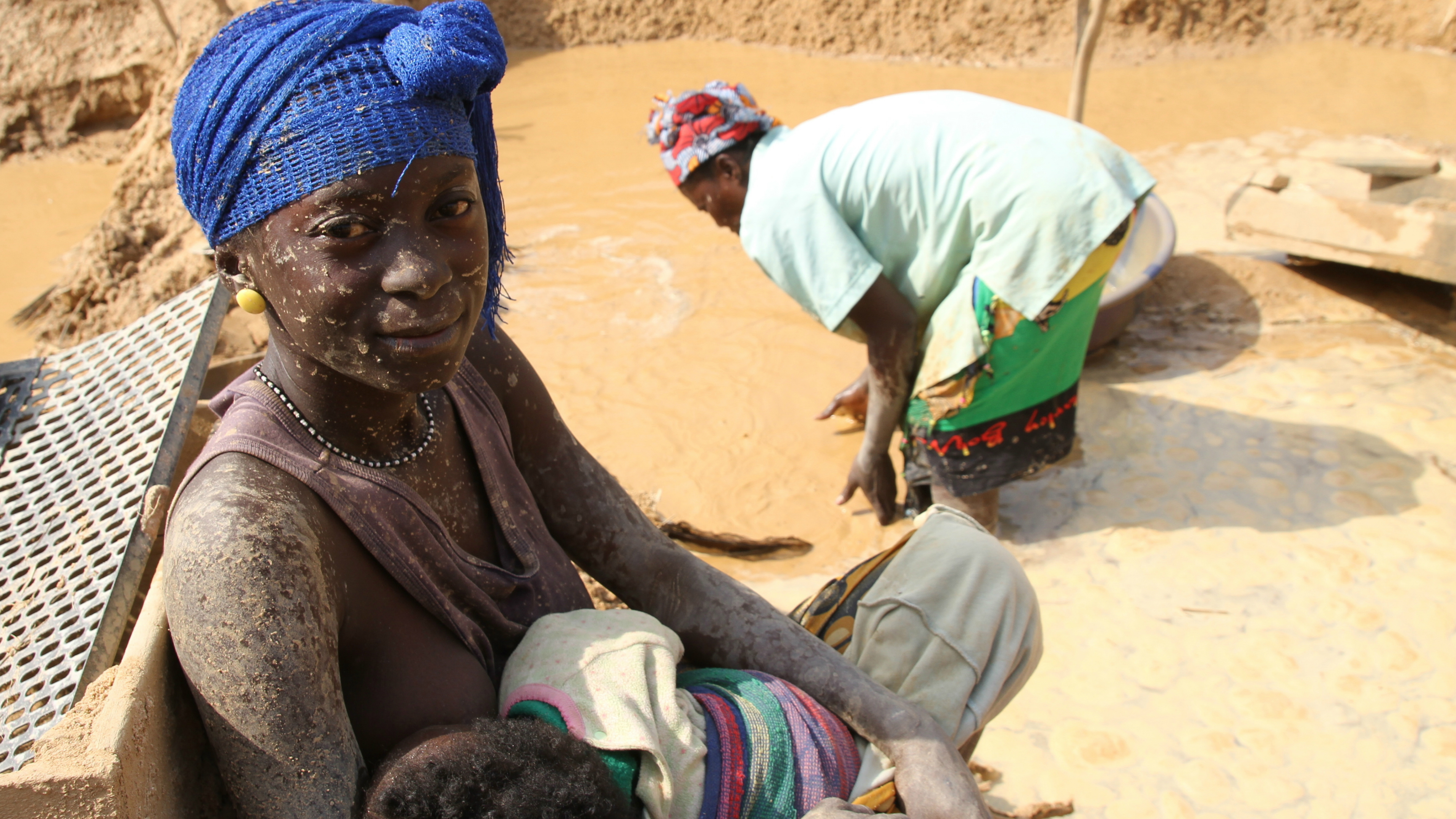Mapping opportunities for improving the environmental sustainability of gold mining in Sierra Leone
This study will use an empirical approach to understanding the environmental impacts of the mining sector and propose more potentially sustainable solutions.

Over the past two decades, mineral-rich sub-Saharan Africa has been transformed by the growth of informal artisanal and small-scale mining (ASM); low tech, labour-intensive mineral extraction and processing that employs rudimentary tools, and has low barriers to entry for poor people. While the livelihood benefits of the ASM sector are largely undisputed, policies and programmes aimed at minimising its environmental footprint have to date had limited success.
This project will focus on the case of Sierra Leone; a country with one of the largest and most dynamic ASM economies in sub-Saharan Africa. The study will:
- generate much-needed data on the environmental impacts of the sector
- deepen understanding of how ecosystems services and dependent livelihoods are impacted by its activities
- propose more tangible, empirically grounded solutions capable of facilitating the sustainability of the sector
The project brings together an experienced interdisciplinary team of researchers from the University of Bath, who will work closely with Sierra Leonean communities, researchers and policymakers. They will facilitate the co-production of knowledge, and ensure that the research findings will directly inform strategies to formalise the ASM sector while simultaneously reducing environmental impacts.
The project will engage a diverse range of stakeholders, establishing new relationships between all project partners, and building an international academic collaboration around research on sustainable natural resource management and development. This will be the first step in galvanising an interdisciplinary extractive industry research hub at Bath, and will lay the foundation for the submission of a major research bid to the Global Challenges Research Fund (GCRF) to follow.
Project outputs
Policy engagement workshop in Sierra Leone
Invited participants will include individuals from:
- relevant Government of Sierra Leone Ministries
- the National Minerals Agency
- the Environmental Protection Agency
- the donor community (the World Bank and GIZ)
- NGOs
- academics from the University of Sierra
- the UN Agency
- UNITAR (presently putting Sierra Leone’s National Action Plan together under the UN Minamata Convention to combat Mercury)
Co-authored journal article
This will synthesise research findings and be submitted to a leading peer-reviewed journal in the field of geography, development studies or environmental sciences.
Development of a major Global Challenge Research Fund proposal
Dr Roy Maconachie, Dr Lee Bryant, Dr Thomas Kjeldsen and research colleagues at Fourah Bay College, have already been in discussion about a possible larger funding proposal that would focus on mining livelihoods, ecosystems services environmental change. The partnerships formed and the data generated in the project would directly inform this process.
Research hub
We aim to complete the first step towards the establishment of an interdisciplinary research hub at Bath. This will focus on the extractive industries and development.
Dr Roy Maconachie is currently working to establish a new research cluster based in the Department of Social & Policy Sciences, which will draw in scholars from other departments, including Department of Politics, Languages & International Studies, the Centre for Business, Organisations and Society in the School of Management, and most notably, researchers in the Water Innovation and Research Centre, where Maconachie, Bryant and Kjeldsen are all on the Management Board.
The proposed study will be a vital step in bringing social scientists and natural scientists together to work on this emerging research area. In the summer of 2019, Professor Anthony Bebbington (Clark University, USA) has been appointed as Global Chair to help galvanise this emerging research cluster.
Project team
- Dr Roy Maconachie, Department of Social & Policy Sciences, University of Bath
- Dr Lee Bryant, Department of Architecture & Civil Engineering, University of Bath
- Dr Thomas Kjeldsen, Department of Architecture & Civil Engineering, University of Bath
- Dr Solomon Gbanie, Department of Geography, Fourah Bay College, University of Sierra Leone
- Mr Kabba Bangura, Department of Geography, Fourah Bay College, University of Sierra Leone
- Mr Anthony Koroma, Department of Physics, Fourah Bay College, University of Sierra Leone
